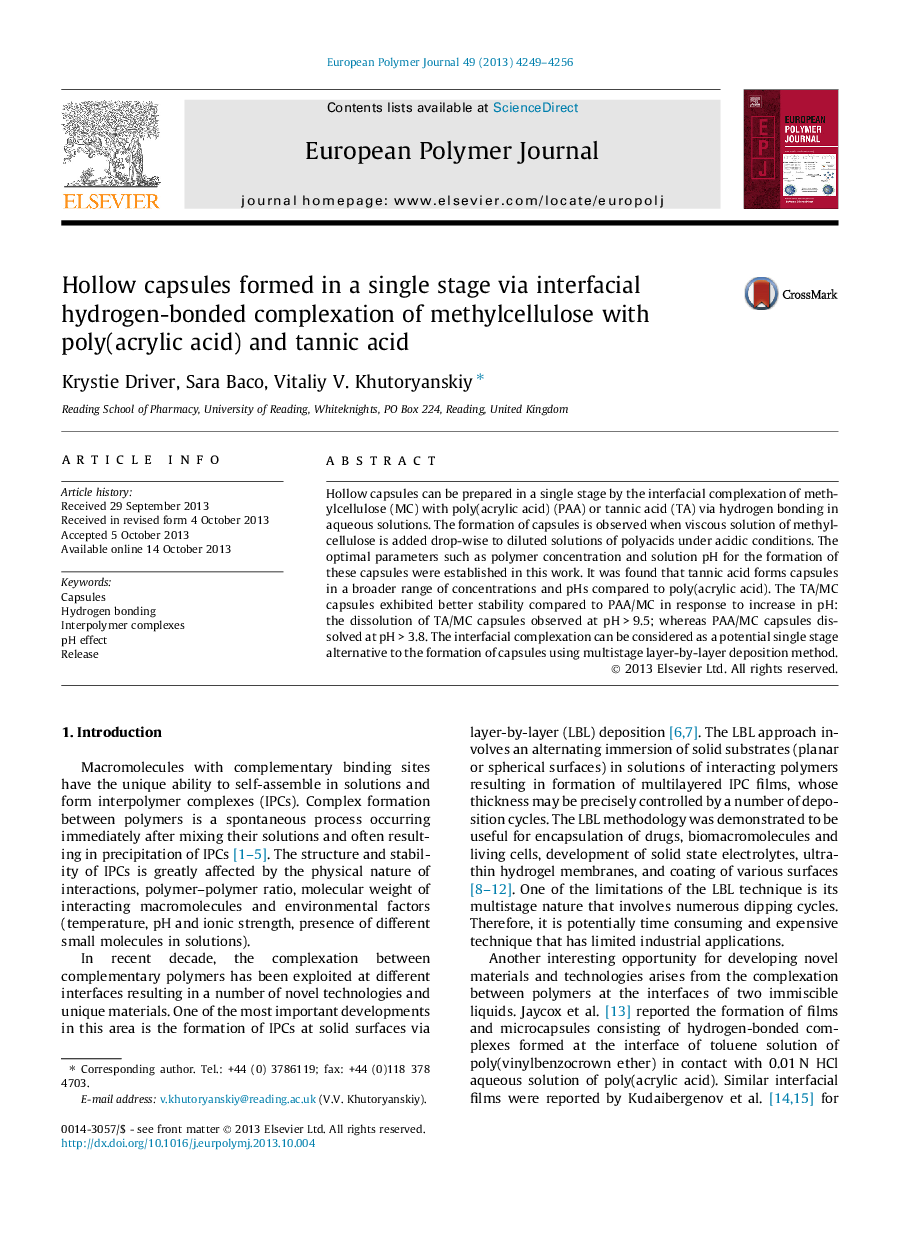| Article ID | Journal | Published Year | Pages | File Type |
|---|---|---|---|---|
| 1401969 | European Polymer Journal | 2013 | 8 Pages |
•Hollow capsules can be formed by interfacial complexation via hydrogen bonding.•This complexation can be achieved between methylcellulose and polyacrylic acid or tannic acid.•Tannic acid-based capsules have greater pH-stability compared to poly(acrylic acid).•Interfacial complexation is a single step alternative to layer-by-layer technique.
Hollow capsules can be prepared in a single stage by the interfacial complexation of methylcellulose (MC) with poly(acrylic acid) (PAA) or tannic acid (TA) via hydrogen bonding in aqueous solutions. The formation of capsules is observed when viscous solution of methylcellulose is added drop-wise to diluted solutions of polyacids under acidic conditions. The optimal parameters such as polymer concentration and solution pH for the formation of these capsules were established in this work. It was found that tannic acid forms capsules in a broader range of concentrations and pHs compared to poly(acrylic acid). The TA/MC capsules exhibited better stability compared to PAA/MC in response to increase in pH: the dissolution of TA/MC capsules observed at pH > 9.5; whereas PAA/MC capsules dissolved at pH > 3.8. The interfacial complexation can be considered as a potential single stage alternative to the formation of capsules using multistage layer-by-layer deposition method.
Graphical abstractFigure optionsDownload full-size imageDownload as PowerPoint slide
